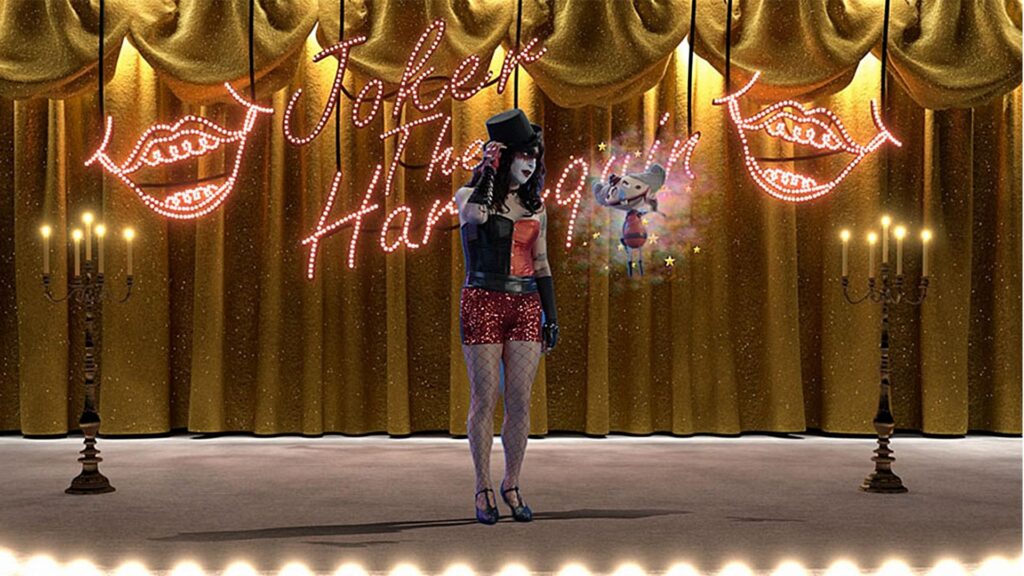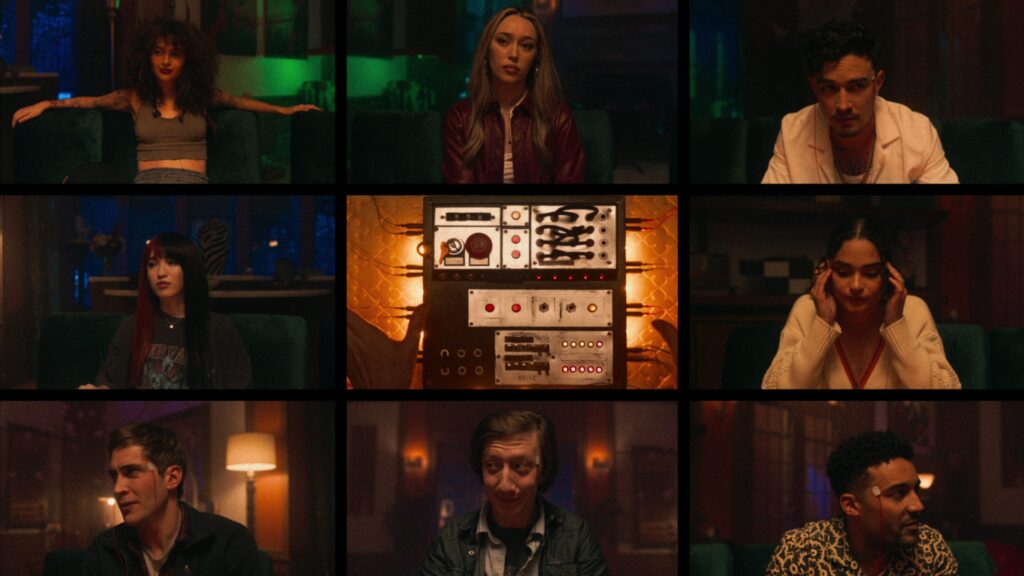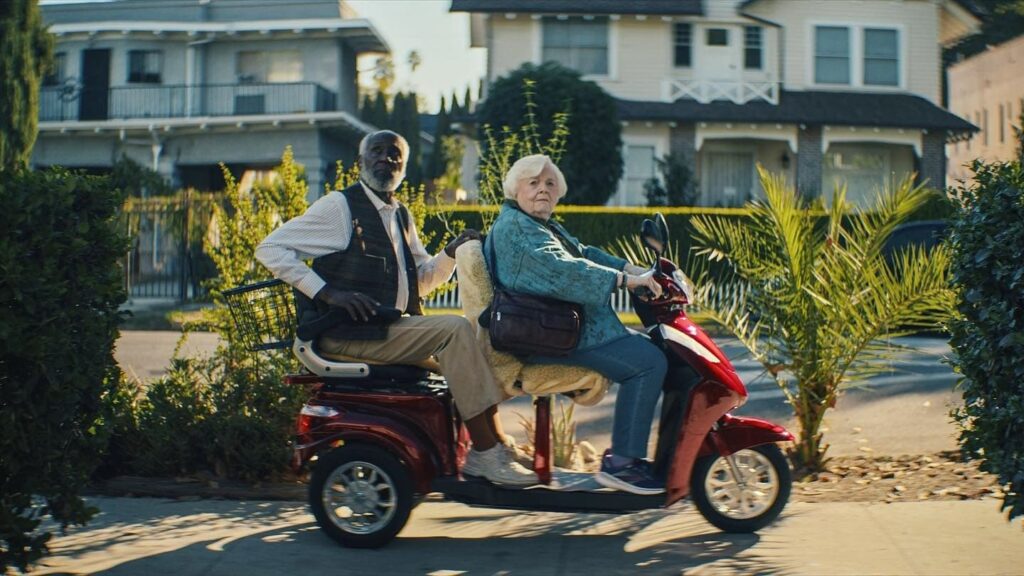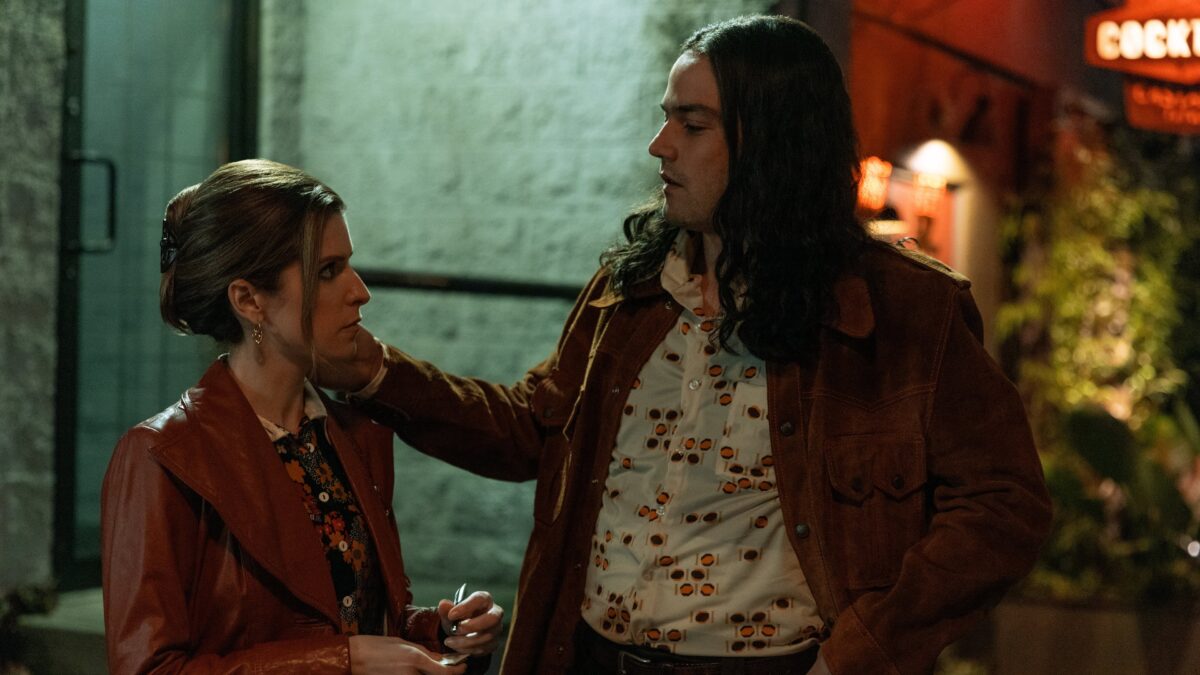My backlog dump of quickly jotted 2024 reviews as I close out the “cinematic year” continues with a look at some debut films. All of these movies are the first for their directors. None are Oscar nominees, but we’re starting to close in on awards contenders.
2024 Mini-Review Roundup:
- Part 1: The Panned
- Part 2: The Shrugged
- Part 3: The Debuted
- Part 4: The Snubbed
- Part 5: The Nominated
- Part 6: The Best?

Janet Planet
Debut Director: Annie Baker
If you’ve been reading me for awhile, you know I have a label for these kinds of movies: “well-observed.” It’s a backhanded compliment. These are upper-shelf Sundance-core dramas that are thoughtfully constructed and acutely rendered but don’t really make a case for their own existence. I know saying so is hypocritical, because I typically love hangout comedies and vibey jam sessions, and I certainly don’t mean “well-observed” negatively. But something about a film carrying the tone of thoughtful drama without much actually happening strikes me as odd; like, why generate gravity if there’s no impact with the ground.
Janet Planet is the well-est observed-est movie of the year both in that it’s one of the best made of its annual crop, and it’s the most bafflingly empty of narrative thrust. In three chapters we see Janet (a terrific Julianne Nicholson) navigate single parenthood as a rural Massachusettes hippie. Her daughter Lacy (Zoe Ziegler) is a well-sketched blend of normal and strange, of mature and difficult to manage. Janet drifts in and out of relationships with other complicated people. She considers joining a cult-like commune led by Elias Koteas, whose presence is always welcome.
Annie Baker shows some chops (the film’s conclusion includes a provocative bit of magical realism), but something about the vibe kept me at a distance. That must be mostly personal taste, but I was not drawn to this parent-child pairing the way I was, e.g., Aftersun‘s. I suspect a rewatch in the right mood would prove very rewarding, but I’m soft-pedaling my praise for now, though consider it a higher-end version of the below rating.
Is It Good? Good (5/8)

Woman of the Hour
Debut Director: Anna Kendrick
Anna Kendrick clearly has sufficient savvy and skill to make a good film, and I do think Woman of the Hour inches into goodness. But there are a few more bad-instinct stumbles here than I’d prefer to see. If she can raise her storytelling to the level of her knack for craft, stuff like scene construction and tension generation and actor direction that she’s already solid at, she might be on to something.
Woman of the Hour is a serial killer story, but Kendrick has gone out of her way to minimize the sense of exploitation towards its women victims. That’s noble and all, but… why make a movie about a serial killer who targeted women then? It scrubs away some of the danger and looming sense of evil, and there’s lot of thematically clunky stuff tacked onto the story to support this perspective that hurts the thriller at a macro level.
The sequencing and timeline of the screenplay is a big problem too. It really emphasizes that the Dating Game incident has no bearing on the rise and fall of Rodney Alcala’s reign of terror. It’s just a curious “isn’t it strange that…” grace note, yet the main subject of the film’s story.
Still, Woman of the Hour is pretty damn tense and watchable. I wouldn’t have guessed Kendrick to be a natural thriller-monger given she does more comedy and light drama as an actor. I’ll be very curious if she directs again what she decides to make.
Is It Good? Good (5/8)

The People’s Joker
Debut Director: Vera Drew
I suspected, correctly, that The People’s Joker is not for me. But it’s good to go out of your comfort zone as a lover of the medium, you know? I don’t quite like The People’s Joker, but I don’t regret watching it.
“Punk” is a very difficult spirit to capture in narrative feature film, so necessarily collaborative and generous is cinema as a medium. And yet “punk” is the phrase that kept running through my mind during The People’s Joker: a middle finger to good taste, restraint, the establishment, IP schlock, cowardly comedy, and militantly heteronormative society. The film is Scotch taped together with crowdfunding and fan-made animation, but not remotely half-assed.
Astonishingly, the film is as heartfelt as it is transgressive — once I realized that this was not a mere flippant, socially-conscious spoof but a work of autobiography, I became a lot more sympathetic towards it. But its big ideas are satiric rather than personal: In a society so corporatized, an entertainment landscape so saturated with vigilante justice wish fulfillment scrubbed free of class consideration, The People’s Joker is both parody of the symptoms and the antidote. Vera Drew is its impish but wounded muse. This could only be made by someone who both loves and hates comic book movies, and both in thoughtful ways. (Honestly, I found the juxtaposition of the safe, over-regulated comedy scene with violent superhero stories more thoughtful than its use of gender and identity, but that is probably my own cishet comedy-loving bias showing.)
…Unfortunately, all that admiration doesn’t mean I enjoyed watching The People’s Joker. I laughed a handful of times, but something like 80% of the film is more cringe-inducing than funny to my eyes and ears. It’s cheap and ugly, of course, but in a noisy, artless way more than an inspired, bootstrapped one — YouTube Poop stretched out to 88 minutes. I engaged with it more as performance art rather than actual storytelling.
The People’s Joker is a nifty project whose existence and distribution I wholeheartedly support. Its spirit is indomitable. It provoked me and made me think. Yes, it is “punk.” But it is a film ultimately destined to be loved by a very narrow audience… one that does not include me.
Is It Good? Nearly Good (4/8)

It’s What’s Inside
Debut Director: Greg Jardin
It’s What’s Inside is good enough to convince me that its premise could make for a very fun film: a Freaky Friday body swap movie, but an ensemble thriller rather than a fluffy comedy. A group of friends with interpersonal baggage have their consciousnesses reshuffled with other people in the group in a futuristic parlor game, and everyone tries to figure out who has “become” who. It rapidly flies off the rails. It sounds like a pitch for a fun film, but It’s What’s Inside is not savvy enough to actually be that fun film.
There are two crippling problems with It’s What’s Inside. The first is that the eight (!) main characters are not nearly well-drawn enough for me to know or much care what is going on with each them. The cast list should really be half as long. By the end I still couldn’t remember anything about four of the eight characters, in part because they’d spent most of the runtime in other bodies. (If you have a hard time with names like I do, you practically need a crib sheet to watch this film.)
The second problem is that It’s What’s Inside changes its mind every ten minutes about what kind of movie it wants to be. It turns out “erotic thriller” would have been the best answer — those are by far the most compelling stretches of the film, moreso than “slasher” or “whodunit” or “big tech satire” or “stoner comedy” or any of the other hats it tries on for a few minutes at a time. The movie never really digs into most of its ideas, so it all feels like a bunch of wheel-spinning.
The hook carries the film far enough, and it’s modestly satisfying as a sleepover popcorn film aimed at sixteen year olds — I can easily imagine teens daydreaming and arguing about what they’d do if they were put into each others’ bodies — but a disappointment given the potential. It’s weirdly mean-spirited, too.
Biggest strength: The editing is clever in the way it shows the identities transitioning between bodies, toggling between their outer appearance and their “inner” personhood.
Is It Good? Nearly Good (4/8)

Thelma
Debut Director: Josh Margolin
Ever wake up and think to yourself “I want to watch a film that’s just fine today?” If so, queue up Thelma. It’s not so soulless as streaming content dump films; nor is it even a little bit challenging. It so effortlessly straddles the line between clicking as a well-executed little comedy-thriller about a grandma and her grandson, and drifting into forgettable nothingness that I genuinely can’t decide if I like it or not.
What puts it just over the edge into the positive column for me is the title performance by 95-year-old June Squibb, which is not just “fine for a near-centarian” but, like, actually good and touching and funny. Squibb is a crowd-pleaser, and she carries the movie to the finish line. I can’t imagine hating Thelma, nor can I imagine calling it one of the year’s best. (Though friend-of-The Goods Brennan Klein disagrees.)
Is It Good? Good (5/8)
Dan is the founder and head critic of The Goods. Follow Dan on Letterboxd. Join the Discord for updates and discussion.


9 replies on “2024 Mini-Review Roundup, Part 3: The Debuted”
My prejudice against The People’s Joker is that it seems so imprisoned by whatever corporate media I assume it’s railing against. Like, you can’t make your own edgy clown and a Batman that’s lawsuit-proof? Because that’s not so hard that a hundred works haven’t managed it. Is it because you’d like to coattail on the preexisting popularity of the brand names, thereby burnishing your own career and reifying the thing you say you don’t like? It’s a prejudice I suppose I could overcome, but I’m worried I’m about at my limit for scraped-together DIY movies.
I’m glad you reminded me of Woman of the Hour. I guess it’s not a glowing recommendation, but the logline is good.
So It’s What’s Inside is just… that Futurama episode, but four times as long? Though the Futurama episode is more about the joy of solving a math problem, and being funny. Reminds me to hector you about never having seen Your Name.
I see your point re: People’s Joker leveraging the big brand both for buzz and self-inflicted victimhood when it didn’t strictly need to, but I also think the project is so centrally about rebellion against the status quo (and how that rebellion ties to Drew’s self-perception) that I don’t see how it could work with characters like The Jester and her diminutive criminal friend The Sparrow.
Re: Woman of the Hour, I realize my positive mini-review is mostly complaints, but it speaks to how the craft is just unremarkably (and therefore, given context, surprisingly) solid. There’s one scene at a bar and parking lot that’s so good, Netflix just used the scene as its teaser. But I can see you or anyone being much higher or lower than me depending on how much the script bugs you.
I have a confession which is that I’ve only seen a smattering of Futurama despite my adoration of golden age Simpsons. Part of my resistance is that my friends in college very aggressively took the corner of “Futurama > Simpsons” which I got very defensive about even though I haven’t seen the show. (I also am suspicious of any show that gets a cancellation revival, though that shouldn’t stop me from at least watching the original run.)
Futurama is probably pound-for-pound better than The Simpsons by now, and I would accept the opinion that it was even in 20XX, though I don’t think I share it.
Futurama was remarkably resilient to going on extended hiatuses until the latest revival, which has some high points, but it’s a bad sign for a pair of seasons that like 90% of the actual bad episodes of a show reside there.
I disagree with you slightly on WOMAN OF THE HOUR – for my money the very inconsequential nature of the core incident to the rise & fall of a serial killer makes it all the more of a relief when (For once!) a rather charming obscure starlet manages to avoid becoming part of the Butcher’s Bill for a serial killer one gimmick shy of becoming a full blown Slasher.
Think about it: think about just how many versions of this story would feed yet another young woman to the ******* who had the sheer nerve to approach her on Live TV, whether for that little extra thrill of satire, in the interests of black comedy or just because the mental image occurred to someone.
This is, admittedly, looking at things on a rather meta level – put another way, the core story drives home the tragedy and horror of all those other scenes by making it painfully clear that, with a little luck, those other girls might have survived their brush with a killer (and the killer himself might have been brought to book far earlier).
There is a weird and satisfying modulation of the tension of having Kendrick escape by the skin of her teeth rather than become a final girl. It’s a little more realistic, I suppose. And the pretense of having it be on live TV definitely adds a built-in layer of commentary on how we as a culture gawk at victims. Glad this one worked for you!
By the way, I’m not sure if you share my lightly-warped sense of humour, but I’ve been watching Ms. Julianne Nicholson in another mother-and-daughter misadventure on BBC 1 for the past two Saturdays.
Why should this be funny? Why because the show is called DOPE GIRLS (and the show almost certainly lives up to the mental image that name likely gives you, so long as it’s a rather brutally Pulp crime drama set in London’s underworld just after the First World War).
I’ve actually been looking for more Nicholson content to watch. I haven’t seen her in much but she’s been grinding the indie movie scene for 20 years now. Will keep Dope Girls in mind even though I don’t do too much TV these days.
Just fine Thelma also making my top ten haha
I just read your review of it and it’s definitely possible I’m underselling the potency of its observations on aging and intergenerational relationships.